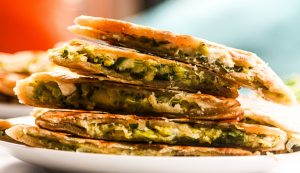
Turkish style Gozleme with Leeks
We can’t travel the world at the moment, but we can take our tastebuds around the world, and this Turkish inspired bread
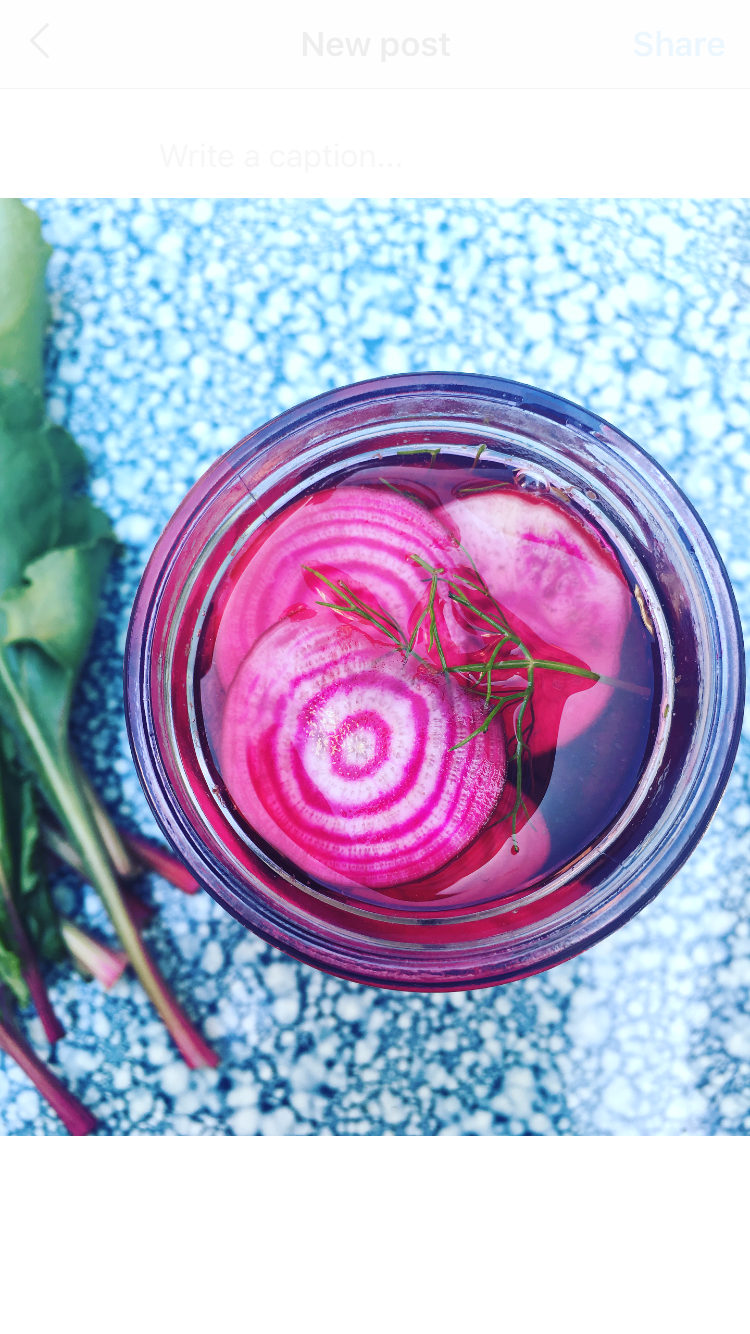
Probiotic-Rich Fermented Beets
Fermenting veggies is great for your gut and will keep your good bacteria levels topped up and your immune system strong.
Ingredients:
1 x 500ml sterilised glass jar-kilner or any recycled jar will do.
2-3 medium sized beetroot. Candied stripy beetroot look very beautiful if you can find this or grow your own, even better!
1/2 tbsp fine unrefined salt-NOTE: don’t use table salt or refined salt as it contains iodine that may affect the ferment.
250ml (1 cup) filtered water. Note: don’t use tap water as the chlorine will affect the fermentation process as it kills the bacteria.
1 garlic clove sliced
1 tsp caraway seeds
1 sprig of fennel
Make sure your jar is very clean by washing with hot soapy water and then placing in an oven on a low heat until all of the water has evaporated.
Place the caraway seeds, garlic, and fennel in the bottom of the jar.
Stir the salt in to the measured water, to make the salt water brine.
Slice beetroot finely using a mandolin, vegetable peeler or a food processor.
Pack the beetroot in to the jar tightly and pour the salt water brine solution over the beets, leaving 1 inch at the top of the jar.
Make sure the beets are submerged below the brine by using a smaller jar that will sit inside, a yoghurt pot, pebble, or a fermentation weight.
Place in a bowl and if using a weight you can screw the cap on loosely to allow any bubbling gasses and juice to escape. If using a jar or yoghurt pot as a weight cover with a cloth to keep bad bacteria out.
Ferment for 7-10 days in a warm spot on the counter top out of direct sunlight. This is the perfect environment for the bacteria to grow. Check the flavour every few days to your liking. The beets should taste sour and tangy. The longer you leave them the more sour and tangy they will become. When your’e happy, seal and keep in the fridge. They will keep for up to a year.
Nutrition: Fermented foods are rich in probiotics and so are great for your supporting the health of your gut microbiome, by feeding your army of friendly bacteria. Probiotic rich foods keep us healthy and support our immunity because 70% of our immune systems are located in our digestive systems and so it is important to include beneficial bacteria in our diets to top up our levels.
Beetroots are high in fibre, which is beneficial for digestive health.
Beets contain nitrates which support athletic performance and lower blood pressure.
The natural red pigment found in beets contains a unique class of antioxidants called betalains that may support many areas of health including detoxifaction, eye health, cardiovascular, and pro-inflammatory conditions.
Beets contain blood building iron, vitamin C, folate, manganese, vitamin A, phosphorous, manganese, potassium, betaine, and choline. The leafy green tops are also nutritious so don’t waste these as they contain calcium, magnesium, vitamin K, and vitamin A.
Waste Not: Preserving veg is a great way of doing your bit for the environment. By using up any leftover veg you can help to prevent food waste as these ferments will also for up to a year in the fridge. Don’t forget to use your beet leaves up too as a spinach replacement or in a pesto.
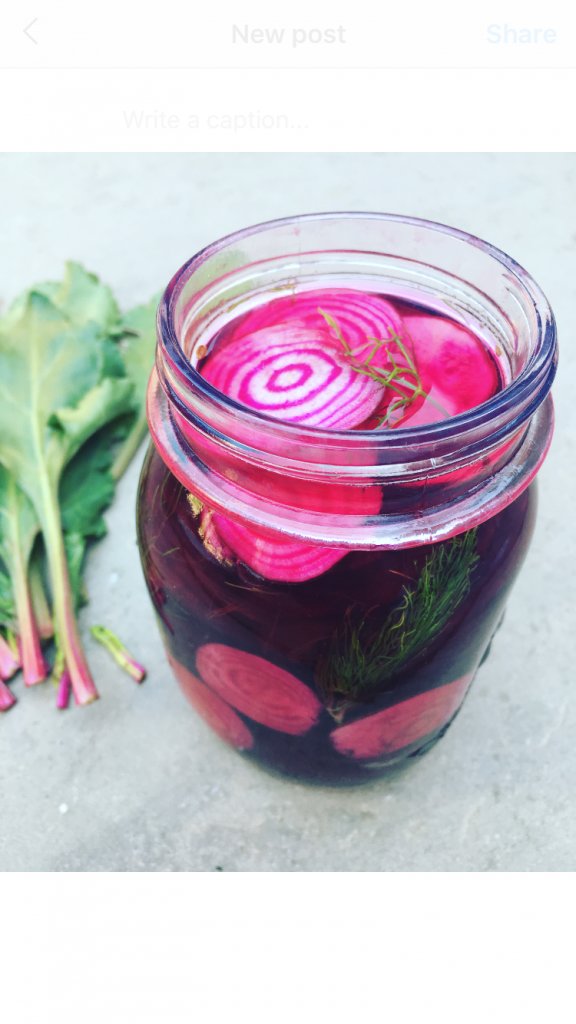

We can’t travel the world at the moment, but we can take our tastebuds around the world, and this Turkish inspired bread
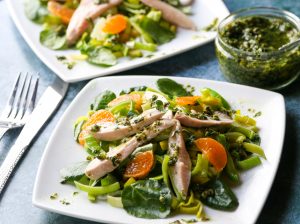
A warm salad, celebrating wonderful seasonal winter vegetables, accompanied with the addition of tangy satsuma. Leeks make a great warm salad, and
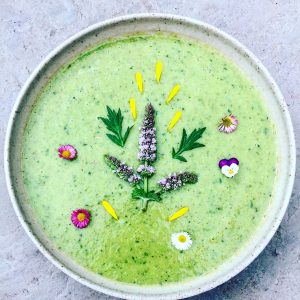
Courgette, Cucumber, Pea & Mint Soup This is a beautiful green summer soup that can be eaten hot or cold and uses
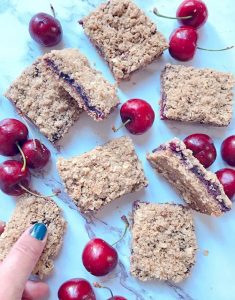
Cherry Bars Sweet cherries are available from May to August in the UK so make the most out of them during these
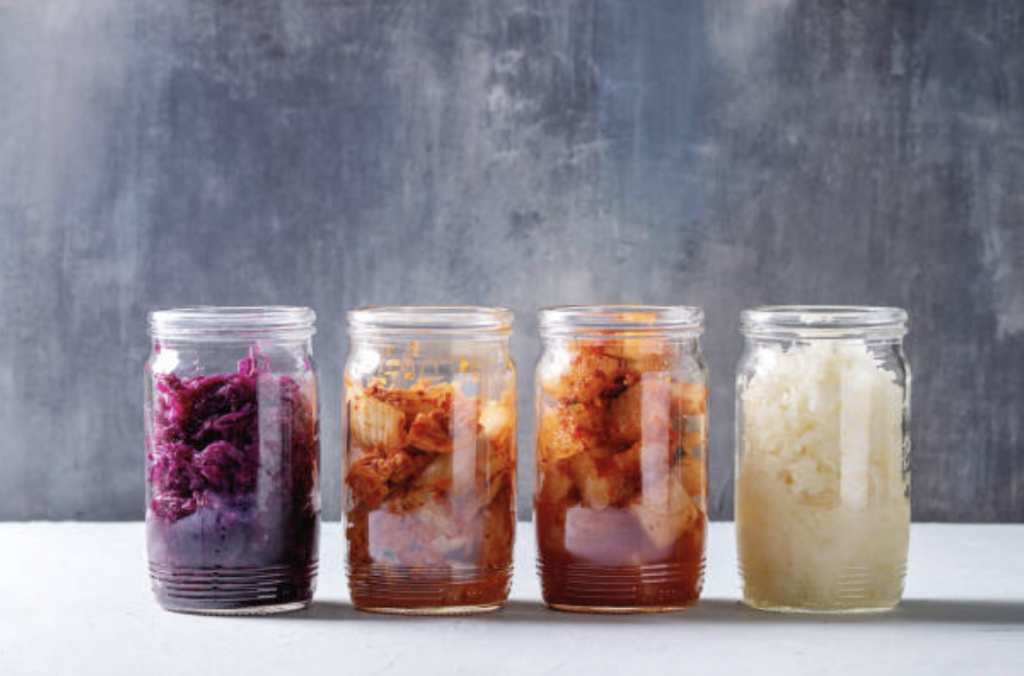
Learn all about how to make delicious gut friendly fermented foods safely in your own home. Cook along with us in this online event.